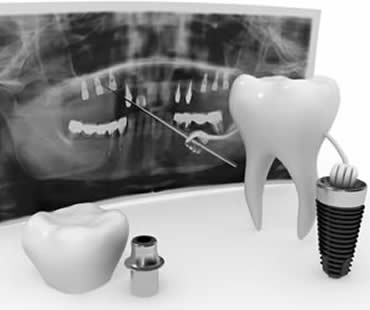
Oct 3, 2024 | Dental Topics 3, Dental Information, Blog
You only get one set of teeth, so you need to protect them. Good home habits, like routine brushing and flossing, help keep your smile and mouth healthy. Regular checkup appointments allow your dentist to monitor your oral health and address any issues before they escalate.
To enjoy a beautiful, vibrant smile, keep these points in mind:
Don’t wait for pain
Many people believe that their teeth and gums are fine because they don’t have any discomfort. Certain conditions, like gum disease and tooth decay, begin with mild symptoms and don’t cause pain until they have progressed. Schedule exams twice a year so that your dentist can assess your current dental health.
Have a plan
Even if you can’t take care of everything on a proposed treatment plan, prioritize the items on the list and address the problems one at a time.
Choose wisely
Though addressing your oral health issues can be expensive, putting off treatment or choosing an under-qualified provider will cost you more in the long run. Find an experienced dentist that you can trust and establish a good relationship with this provider.
Maintenance matters
Just like you have to change the filters in your air conditioning and the oil in your car, you need to make time for routine care appointments. With regular checkups, you are less likely to need restorative services such as crowns, fillings, and implants.
Oral health relates to total wellness
What happens in your mouth impacts the rest of your body. Research has linked gum disease to more serious health concerns such as cardiovascular disease, risk of stroke, osteoporosis, and low birth weight.
If you need a dentist in Conyers contact us today

Feb 10, 2023 | Dental Topics 3, Dental Information, Blog
You only get one set of teeth, so you need to protect them. Good home habits, like routine brushing and flossing, help keep your smile and mouth healthy. Regular checkup appointments allow your dentist to monitor your oral health and address any issues before they escalate.
To enjoy a beautiful, vibrant smile, keep these points in mind:
Don’t wait for pain
Many people believe that their teeth and gums are fine because they don’t have any discomfort. Certain conditions, like gum disease and tooth decay, begin with mild symptoms and don’t cause pain until they have progressed. Schedule exams twice a year so that your dentist can assess your current dental health.
Have a plan
Even if you can’t take care of everything on a proposed treatment plan, prioritize the items on the list and address the problems one at a time.
Choose wisely
Though addressing your oral health issues can be expensive, putting off treatment or choosing an under-qualified provider will cost you more in the long run. Find an experienced dentist that you can trust and establish a good relationship with this provider.
Maintenance matters
Just like you have to change the filters in your air conditioning and the oil in your car, you need to make time for routine care appointments. With regular checkups, you are less likely to need restorative services such as crowns, fillings, and implants.
Oral health relates to total wellness
What happens in your mouth impacts the rest of your body. Research has linked gum disease to more serious health concerns such as cardiovascular disease, risk of stroke, osteoporosis, and low birth weight.
We treat patients from Conyers and the surrounding area

Jan 27, 2023 | Dental Topics 3, Cosmetic Dentistry, Blog
If you envy the stunning smiles of famous starlets and models, you can enhance your own appearance with teeth whitening. Your dentist can remove stains and reveal a brilliant, white smile with professional teeth whitening,. After teeth whitening, patients often restore their smile’s radiance, feel more confident, and look years younger. To decide if teeth whitening would work for you, review these questions and answers.
Who is a candidate for teeth whitening?
Though your dentist can determine whether you should consider teeth bleaching, anyone with surface stains from aging, lifestyle choices, or certain foods and beverages can erase discolorations with professional teeth whitening.
What options are available for whitening my teeth?
Many dentist offer both in-office and at-home teeth whitening. The in-office procedure produces immediate results and usually takes about an hour. Take-home whitening kits involve custom bleaching trays and generate sparkling smiles over a two to three week time frame.
Is teeth whitening safe?
If you choose professional teeth whitening, you can safely and effectively transform your appearance. Drugstore kits don’t contain the same level of bleaching agent and they aren’t monitored like professional products, so you may not achieve the desired outcome.
Will teeth whitening last?
With proper care that includes brushing, flossing, and routine checkups, you can enjoy a beautiful smile for years to come.
Do whitening toothpastes work?
For removal of mild surface stains, these products are somewhat effective, but they don’t actually contain bleach. Whitening toothpastes work on the principal of abrasion, so their rough ingredients rub off stains, providing only temporary brightness.
Our dental office is located in Conyers

Oct 1, 2021 | Dental Topics 3, Dental Information, Blog
Once you have had dental implants surgically placed, you will want to follow some important care tips to ensure their long-term success. With proper care, dental implants can last a lifetime, so it’s exceptionally important to adhere to the instructions provided by your dentist and guidelines like these:
- Follow a vigilant routine of brushing and flossing thoroughly at least twice per day to eliminate the plaque that can cause periodontal disease, which is a leading cause of implant failure.
-
- Consult with your dentist about the type and use of special toothbrushes or oral irrigation devices that can help with the additional removal of food debris or plaque that builds up around the implant areas.
-
- Visit your dentist approximately every three months for the first year after implant surgery, and then every six months for the duration of your implants.
-
- If you are also wearing an implant supported denture, seek additional guidance from your dentist about the placement and removal of your denture to prevent damage to the implant.
-
- Refrain from applying excessive pressure or chewing on hard foods that could cause damage to the implant area. Patients who suffer from bruxism (teeth grinding) should consider being fitted for a night guard to protect the implants.
While the success rate of dental implants is high, implant failure can happen and normally results from infection, fracture, or damage to the nerves, teeth or blood vessels surrounding the implant. A successful implant patient who takes vigilant care of their teeth, gums, and implants can expect a full recovery and complication-free lifetime of beautiful, healthy smiles.
If you live in the Conyers area contact us today

Nov 28, 2024 | Dental Topics 3, Implant Dentistry, Blog
Dental implants are the state-of-the-art restorative solution for missing teeth. They provide a stable base that is the next best thing to a natural tooth root. Because of this and other qualities, dental implants are rising in popularity each year as more and more people discover their convenience and stability.
Dental implants are replacement teeth, typically made of porcelain or a similar material, mounted on top of a titanium screw that is embedded into a patient’s jawbone. Over time, this screw will fuse directly with the bone in a process known as ossification. This fusion creates a tooth base that is so stable, it’s as good as a tooth’s natural roots.
Dental bridges can become dislodged and food may collect under the bridge, leading to discomfort and bacteria build-up. A dental implant goes all the way down, so there’s no “under” underneath to collect food and cause problems.
Most tooth restorations necessitate special ways of cleaning or flossing, and you have to be careful you’re doing all the right things to maintain your teeth properly. You care for a dental implant the same way you do for a natural tooth, by brushing and flossing, so you don’t even have to think about it when you’re cleaning your mouth.
The bones in your jaw are only healthy as long as you have healthy tooth roots in them. The tooth roots stimulate the bone, signaling it to stay full and healthy. Without the stimulation of the roots, the bone begins to shrink away. Dental implants preserve bone by acting as artificial tooth roots. The jawbone can’t tell the difference, and the bone stays strong and robust.
These factors and more are leading patients to turn to dental implants to address their missing teeth. Talk to your cosmetic dentist to see why dental implants are the perfect choice for you.
We look forward to seeing you in our Conyers dental office

Nov 12, 2021 | Dental Topics 3, Implant Dentistry, Blog
Dental implants are the state-of-the-art restorative solution for missing teeth. They provide a stable base that is the next best thing to a natural tooth root. Because of this and other qualities, dental implants are rising in popularity each year as more and more people discover their convenience and stability.
Dental implants are replacement teeth, typically made of porcelain or a similar material, mounted on top of a titanium screw that is embedded into a patient’s jawbone. Over time, this screw will fuse directly with the bone in a process known as ossification. This fusion creates a tooth base that is so stable, it’s as good as a tooth’s natural roots.
Dental bridges can become dislodged and food may collect under the bridge, leading to discomfort and bacteria build-up. A dental implant goes all the way down, so there’s no “under” underneath to collect food and cause problems.
Most tooth restorations necessitate special ways of cleaning or flossing, and you have to be careful you’re doing all the right things to maintain your teeth properly. You care for a dental implant the same way you do for a natural tooth, by brushing and flossing, so you don’t even have to think about it when you’re cleaning your mouth.
The bones in your jaw are only healthy as long as you have healthy tooth roots in them. The tooth roots stimulate the bone, signaling it to stay full and healthy. Without the stimulation of the roots, the bone begins to shrink away. Dental implants preserve bone by acting as artificial tooth roots. The jawbone can’t tell the difference, and the bone stays strong and robust.
These factors and more are leading patients to turn to dental implants to address their missing teeth. Talk to your cosmetic dentist to see why dental implants are the perfect choice for you.
Schedule your appointment at our Conyers dental office




